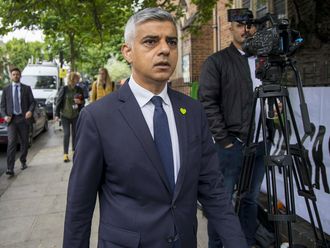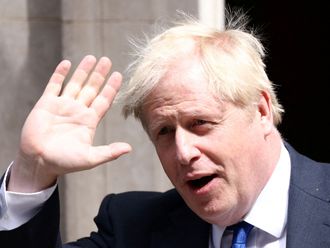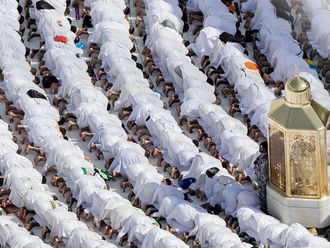Frankfurt: German Chancellor Angela Merkel faces a bitter political reality on Monday after the parties in her fragile coalition suffered heavy losses in a key regional election and a junior partner made threats to quit.
Sunday’s blow for Merkel’s conservative Christian Democratic Union (CDU) and the Social Democrats (SPD) in Hesse was the latest state poll marred by the image of the right-left “grand coalition” government limping from crisis to crisis at a federal level.
“The situation for Merkel is grave,” daily Sueddeutsche Zeitung judged late Sunday. “Now the question is whether we’ll soon have to write ‘in liquidation’ after her coalition.”
Exit polls showed both of the formerly dominant parties being hit with losses of around 11 percentage points in Hesse compared with the last election in 2013, although the CDU still claimed first place on 27.2 per cent of the vote.
Meanwhile, at 19.8 per cent the SPD tumbled into a neck-and-neck race for second place with the ecologist Greens, who garnered 19.6 per cent.
Showing political gains was the far-right anti-immigrant party Alternative for Germany (AfD) which took 13.2 per cent of the vote to enter the Hesse state legislature for the first time.
‘Unacceptable’
Merkel’s first order of business when she speaks at 1pm (1200 GMT) in Berlin will be buttering up the Social Democrats, who have threatened to leave the coalition that many blame for years of disappointing electoral setbacks.
That would almost certainly trigger fresh elections and perhaps the end of Merkel’s political career.
“The state of the government is unacceptable,” SPD general secretary Andrea Nahles said on Sunday, demanding from the CDU a “clear, binding road map for politics in the interest of the citizens”.
She was seeking to strike a sober contrast to the highly personal internal quarrels of the conservative camp in recent months.
The government almost collapsed twice over the summer, notably when Merkel restrained hardline interior minister Horst Seehofer’s attempts to toughen up migrant policy.
Armed with Nahles’s checklist, by September 2019 the SPD “will be able to see whether this government is still the right place for us”, the party leader said in an implicit threat to the chancellor.
After federal elections in September 2017 defined by sharp drops for both the centre-right and left and the appearance of the far-right in the Bundestag (parliament) for the first time, the SPD agreed only reluctantly to back Merkel yet again.
Rendezvous in December
Increasing numbers of SPD members are calling for the party to quit government immediately and lick its wounds in opposition, as it is presently polling below AfD nationwide, at 15 per cent to the far-right’s 16 per cent.
But Merkel also has to shore up support among her own party, where more and more members are calling her leadership into question.
Annegret Kramp-Karrenbauer — widely seen as the chancellor’s anointed successor — spoke of a “very painful” night for the CDU in Hesse.
It was the second regional vote in quick succession to disappoint the conservative camp, after a battering in Bavaria two weeks ago.
Merkel’s 13 years in power have piled up baggage from repeated compromise-laden “grand coalitions” with the SPD, as well as a fateful 2015 decision to keep Germany’s borders open, ultimately allowing in more than one million migrants.
The mass arrivals are credited with fuelling the rise of the far-right, but Merkel has resisted calls to steer the CDU further rightward in response.
Although there are many months before the next regional poll, a vote touching the chancellor more personally is slated for December, when she must stand for reelection as party chief.
“In Merkel’s situation, clinging on would be a worse mistake” than giving up the party presidency, conservative daily Frankfurter Allgemeine Zeitung commented late Sunday.
“By passing the baton of her own free will she would show that she knows the same thing everyone knows: the end of her chancellorship is approaching.”












